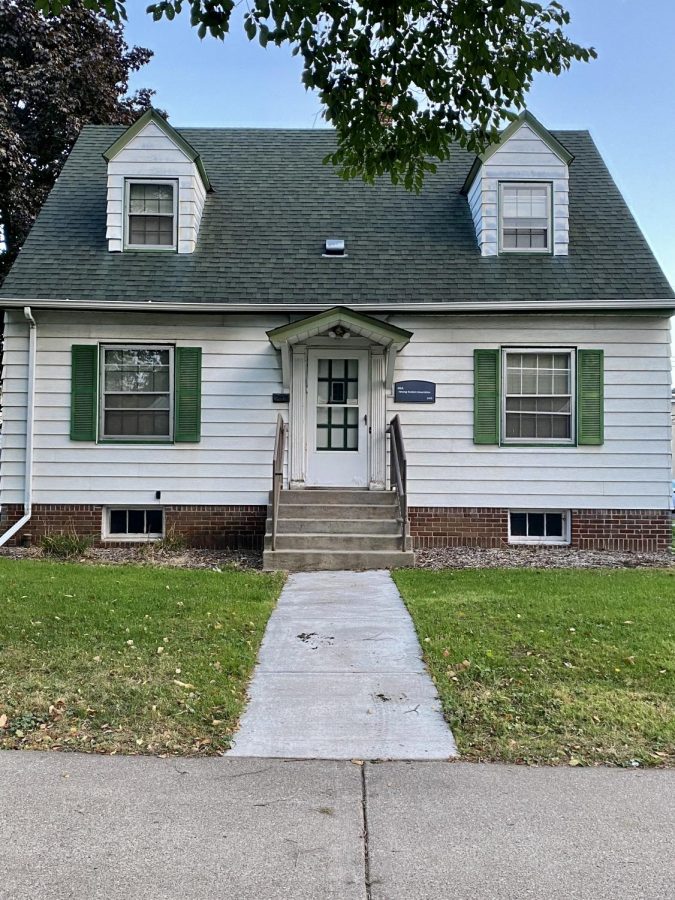Closing of multicultural houses resolved
Hamline’s multicultural houses were slated to close, a decision that sparked student organizations
Taleah Alldritt
Hamline’s Hmong Student Association [HSA] student housing, founded in 1995. The organization allows students to share their culture with others through campus engagement.
October 15, 2021
Hamline housing options have faced many changes over the past year and a half, most recently the multicultural houses Hamline owns and provides to student groups.
These houses are sprinkled around the Hamline-Midway neighborhood. They have historically held students of the Black Student Collective (BSC), Hispanic and Latino Organization (HALO), and Hmong Student Association (HSA), along with organizational materials.
These houses were closed as students left during the spring of 2020 and have not been opened since due to COVID-19.
In mid-August of 2021 students of these multicultural organizations received an email regarding the closure of these facilities.
“From a university standpoint, from more of a business standpoint, looking at the condition of the houses, looking at the upkeep and those kinds of pieces… it would make sense to close those houses completely, and we were moving forward to do that. We had notified the students that we were closing the houses,” Dean of Students Patti Kersten said. “It wasn’t the best way to have done that. It wasn’t the right way to have done that and that is my responsibility of how that happened… [We were] missing the piece of what the houses have meant to the students, to the organization, to the alums to the culture of the campus itself. That was a hasty decision and it needed to be changed. And glad that I had the support and making that change.”
The information conveyed in the email made students feel unsettled. After this email, organization leaders collaborated on a letter of reply to share with Kersten and Carlos Sneed, Associate Dean of Students and Hedgeman Center Director.
“I applaud the students for communicating their concerns, their desires, for coming to the table, wanting to have a conversation,” Sneed said. “I think this is a case study in how to work with members of the administration particularly when you have concerns or questions. I’m so happy that they did not jump the gun as sometimes we do.”
Organization leaders value the work they did in composing the letter and the impact it had.
“I believe that’s what really sparked this and I think without the letter, we might have not been able to keep the houses intact,” BSC president Jazmin Clausen-Thomas.
These organizations met with Kersten, Sneed and Assistant Director of Residential Life Yolanda Armstrong to discuss the situation and possible steps to keep the houses on Tuesday, October 5. From this discussion, Kersten amended the decision to no longer permanently close these houses and instead renovate them.
These houses have stood as history and meaning for students and these organizations for decades.
“[These houses provide] a sense of community, a sense of developing a strong support system. A place where they can have conversation points where they can continue to learn about their culture and identity and problem solve individual, collective, organizational, institutional, experiences and issues,” Sneed said.
These spaces will be reviewed by students, facilities and student affairs, with no set timeline as of now, but the goal of renovations occurring so students can potentially move in the spring semester of this academic year.
Long-term there is no established plan for ensuring these houses stay open. There have been conversations about discussing the cleaning and sustainability of these spaces.
President of HSA Yee Thao, who has never lived in the house but has been interested, hopes for a bright new start.
“Maybe it could be like a rebrand of the houses because I know people use the houses for different reasons but to rebrand it or bring back the brand of using the house as a safe space for students of color on campus,” she said.
The future of the houses is something Clausen-Thomas also looks forward to.
“I hope the houses can create a sense of belonging and community for all multicultural organization members,” she said. “Just because it’s like a home away from home, especially if they live on campus, they can feel like they can go to this special house and it has meaning and history and it can just be a place where people could be involved with the club.”

Hamline’s Hispanic and Latino Organization [HALO] housing. HALO was the first Latino student organization created
in 1984.

![Taleah Alldritt Hamline’s Hmong Student Association [HSA] student housing, founded in 1995. The organization allows students to share their culture with others through campus engagement.](https://hamlineoracle.com/wp-content/uploads/2021/10/HSA-3-675x900.jpg)